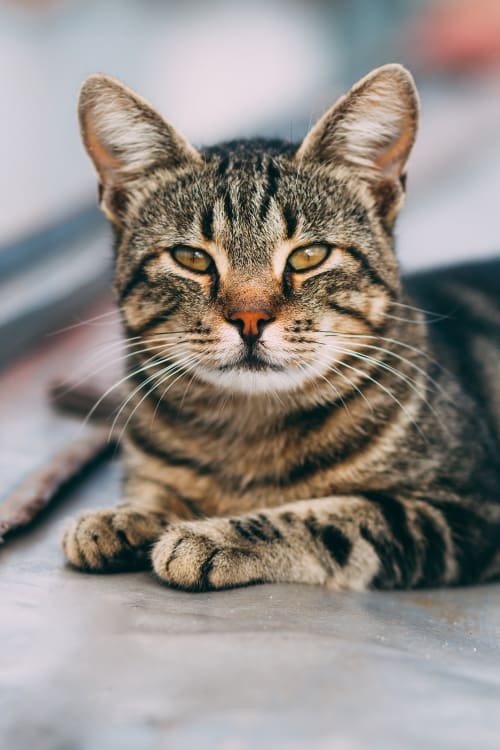Diabetes
If your cat doesn’t produce enough insulin to balance glucose levels or blood sugar, diabetes mellitus results. Poorly controlled diabetes can shorten your cat’s lifespan and lead to nerve disorders, numerous health problems, and severe emergency situations. Treatment for diabetes in cats is focused on management rather than cure and can include insulin injections. Left untreated, diabetes can lead to several serious symptoms, including:
- Thirst
- Increased urination
- Increased appetite or loss of appetite
- Vomiting
- Dehydration
- Motor function problems
- Coma
- Death

Cancer
Cancer can affect a wide range of cells and organs in your cat’s body. The disease first starts to grow within a cell, before attaching to tissue underneath the skin and potentially spreading to other areas of the body. Symptoms of cancer in cats may include:
- Lumps or bumps that change in size or shape
- Sores that do not heal
- Odor from the mouth
- Unexplained bleeding
- Marked increase or decrease in appetite
- Chronic weight loss
- Difficulty urinating or defecating
- Unexplained discharge
Feline Leukemia Virus (which cats can be vaccinated against) is a common contributor to cancer in cats. Other potential causes of cat cancers include toxins in the environment. If detected early during a physical exam, cancer in cats may be able to be treated.
Early detection is key when it comes to treating cat cancers. Other factors which influence the success of treatment include the type of cancer, extent of its spread, and the location of the tumor.
If your cat is diagnosed with cancer your vet might recommend that surgery, radiation, or chemotherapy be used to help treat the illness.
Feline Immunodeficiency Virus (FIV)
FIV is most often seen in male outdoor cats with a tendency to fight. This cat disease is often passed along through bites sustained during fights, although in rare cases it can be passed from a female cat to her kittens.
Feline immunodeficiency virus (FIV) is a slow acting virus and symptoms may not show up until years after the initial infection occurred. Nonetheless, an infected cat’s immune system is severely weakened once the disease takes hold making the cat susceptible to potentially serious secondary infections.
With treatment, infected cats kept in an indoor, stress-free environment can live comfortable lives for a number of months or years before the disease reaches its chronic stages.
Symptoms of FIV in cats may not become apparent for months or years, and they may be intermittent. If your cat is displaying any of the following symptoms they may be suffering from Feline immunodeficiency virus (FIV) and require veterinary care :
- Enlarged lymph nodes
- Fever
- Anemia
- Unexplained weight loss
- Poor grooming or disheveled coat
- Lack of appetite
- Diarrhea
- Abnormal appearance
- Inflammation of the eye
- Inflammation of the gums and mouth
- Skin redness or hair loss
- Wounds that don’t heal
- Sneezing
- Discharge from eyes or nose
- Frequent urination
- Straining to urinate
- Urinating outside of litter box
- Behavior change
What to Do If Your Cat Is Unwell
If your cat is exhibiting any of the symptoms above, it is essential to take them to see your vet as soon as possible. Many cat illnesses progress quickly and can become very serious in just a short period of time.
At Carolina Veterinary Specialists in Huntersville, our veterinarians and board-certified specialists are experienced, caring professionals that work closely with your primary care veterinarian. Together, we provide the highest level of specialty and emergency veterinary care for North Carolina pets.
Note: The advice provided in this post is intended for informational purposes and does not constitute medical advice regarding pets. For an accurate diagnosis of your pet's condition, please make an appointment with your vet.
